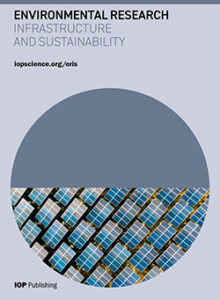ERIS特刊精选|建筑环境中的资源消耗和可持续发展

特刊详情
客座编辑
- Ashlynn Stillwell,美国伊利诺伊大学厄巴纳-香槟分校
- Andrea Cominola,德国柏林工业大学
- Cara Beal,澳大利亚格里菲斯大学
主题范围
Humans in residential, commercial, tourism, institutional, and other buildings consume water, energy, food, and other resources, such that the built environment represents an important sector impacting resource consumption and sustainability. In some built environment contexts, resource consumption data are limited due to different regulatory, technological, or societal factors, including lack data collection, non-public data, and/or privacy concerns. Rapidly emerging innovations in the information and communications technology sector have created challenges in how “big data” are captured, stored, processed, and shared. New data analytics, qualitative methods, and decision-aiding frameworks can advance understanding of the impacts to resource consumption in relation to socio-economics or other external stressors. Understanding the barriers and enablers that smart meter-enabled “big data” can have on resource consumption can help foster sustainability in the built environment.
In this focus issue, we invite contributions that examine water, energy, food, and other resource consumption and sustainability in the built environment. In particular, we are interested in applied examples of how data have been coupled with human and infrastructure systems to promote sustainability in the built environment. Example research topics include, but are not limited to, data-informed analysis of:
- resource consumption in buildings, including residential, commercial, tourism, and institutional facilities;
- spatial and temporal variations in resource consumption across the built environment;
- sustainability considerations for unique built environments, such as remote island, rural, and/or vulnerable communities;
- resource consumption changes in response to work-from-home measures compared to office buildings – particularly in light of the recent global COVID-19 pandemic; and
- the impact of heterogeneous socio-economic, climate, or other external stressors affecting resource conservation and efficiency across diverse human populations.
特刊文章
Understanding resource consumption and sustainability in the built environment
Ashlynn S Stillwell et al 2023 Environ. Res.: Infrastruct. Sustain. 3 030201
Focus Issue Papers
Energy forecasting to benchmark for federal net-zero objectives under climate uncertainty
Scott C Weiss et al 2022 Environ. Res.: Infrastruct. Sustain. 2 045008
Equitable urban water security: beyond connections on premises
Catherine Fallon Grasham et al 2022 Environ. Res.: Infrastruct. Sustain. 2 045011
Zahra Heydari et al 2022 Environ. Res.: Infrastruct. Sustain. 2 045004
Methods for comparing digital applications in buildings and districts
Felix Rehmann et al 2022 Environ. Res.: Infrastruct. Sustain. 2 045010
Estimating residential hot water consumption from smart electricity meter data
Joseph L Bongungu et al 2022 Environ. Res.: Infrastruct. Sustain.2 045003
C D Beal et al 2023 Environ. Res.: Infrastruct. Sustain. 3 025006
Kopal Nihar et al 2023 Environ. Res.: Infrastruct. Sustain. 3 025002
Stepp Mayes and Kelly Sanders 2022 Environ. Res.: Infrastruct. Sustain. 2 025001
Mana Alyami and Siddig Omer 2021 Environ. Res.: Infrastruct. Sustain. 1 035001
The carbon footprint of cold chain food flows in the United States
Junren Wang et al 2022 Environ. Res.: Infrastruct. Sustain. 2 021002
Energy–water nexus of formal and informal water systems in Beirut, Lebanon
Yasmina Choueiri et al 2022 Environ. Res.: Infrastruct. Sustain. 2 035002
Filippo Mazzoni et al 2022 Environ. Res.: Infrastruct. Sustain. 2 025005
Gesangyangji et al 2022 Environ. Res.: Infrastruct. Sustain. 2 025007
期刊介绍

- Environmental Research: Infrastructure and Sustainability(ERIS)是一本涵盖多学科的开放获取期刊,本期刊旨在发表针对各种规模和地理环境的基础建设及其相关系统所面临的各种挑战的研究,以及更广泛意义上的可持续性和持久性研究,包括环境、经济和社会因素等。我们欢迎包括定性、定量、实验性、理论及应用研究的所有方法学研究。
